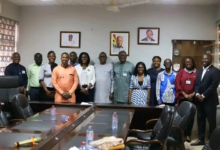
Ghana is said to face the threat of donkey extinction if laws are not passed to curb the slaughtering of animals.
According to Dr Evans Nsoh Ayamdooh, Northern Regional Veterinary Director, as at 2015, it was estimated that about 14,500 donkeys were in the country.
Donkeys are mostly found in the northern parts of the country, including Bolgatanga, Walewale, Dabo and in some parts of the Oti Region.
They play an important role in agriculture by providing draught power for ploughing of lands, transporting water over long distances in rural areas and hiring out the services of the animal to earn a living.
Dr Ayamdooh said that although the current number of donkeys in the country was yet-to-be known, the rate of slaughtering within the past years would impact negatively on its population.
He added that due to the emergence of industrial slaughtering for export and consumption, the existence of the endangered species in the country was under threat.
Speaking at a forum in Accra yesterday to develop a national advocacy action plan for the preservation and the welfare of donkey species, he said difficulty in breeding donkeys, the trade of donkey hide and meat, and the lack of enforcement of laws relating to donkey trade and welfare had also contributed to the threat facing the animal.
“The situation is alarming and threatens the existence of the animal. In September 2017 alone, one company operating in the West Mamprusi Municipality slaughtered 1,271 donkeys for export.
We got this information because that was the month we got to conduct inspections, so you can imagine what happened in the previous months in that year alone,” Dr Ayamdooh stated.
He reiterated the need for a law to ban the slaughtering of such endangered species, especially donkeys, which was critical to local economies in the northern parts of the country.
As part of efforts to deal with the menace, he said there was the need to identify key stakeholders, including the veterinary services directorate and security agencies in the donkey movement and slaughtering industry, and map out their roles towards fighting it.
Any ban on the practice, the Veterinary Director said, would require a strong political will in the enforcement and when needed, the prosecution of offenders.
He called for the strengthening of the capacity of veterinary officers in high donkey population areas on major ailments of the animals to strengthen the surveillance system.
Dr Roger A.L Kanton, a Chief Research Scientist and formerly of the CSIR-Savanna Agricultural Research Institute, highlighted the important role donkeys played in the livelihoods of inhabitants of northern Ghana.
He noted that it was time duty bearers took up the responsibility to safeguard livelihoods by enacting laws to ban the slaughtering of donkeys.
Municipal Coordinating Director, West Mamprusi, Baba Ahmed Abdul-Rahaman, called for a holistic approach in curbing the practice.
BY CLAUDE NYARKO ADAMS and CECILIA LAGBA





